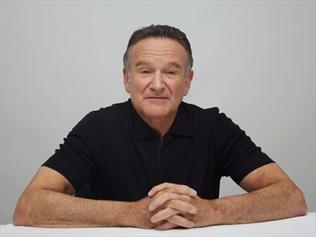
Empowerment & Recovery
Click title above for Playlist.
The Playlist present a variety of speakers addressing various topics in Recovery including Brene' Brown, Brennan Manning, John Townsend, Nicky Cruz, Paul Wood, Jenny McDirmid and Mandy Saligari on a variety of approaches from 12 step to recreational networks mentors and education. Hope that you enjoy the harmony in the variety.
Empowerment & Recovery
Click title above for the full Playlist.
Here are the Four C's of Addiction:

LOSS OF CONTROL:
(Substance abuse)
You can't have “just one” without taking a big risk.
(Emotional or Physical abuse including pornography)
You can't stop your emotions without abusing self or others)
(Emotional or Physical abuse including pornography)
You can't stop your emotions without abusing self or others)
CONTINUED USE:
(Substance abuse)
Despite harmful consequences you spiral out of control, and keep using anyway. (Emotional or Physical abuse including pornography)
Even though you know your actions are making things worse you can't stop, won't stop or don't know how to stop.
COMPULSION TO USE:
(Substance abuse)It's what you think about in the back of your mind. It's there all of the time.
(Emotional or Physical abuse including pornography)
Self talk with self justification in seeing the insanity as the ONLY OPTION to protect yourself from being vulnerable.
CRAVING:
(Substance abuse and)(Emotional or Physical abuse including pornography)
The drive to Use, Get High, Loaded or Stoned or...
To Act Out to regain the false sense of control begins to define you internally and eventually publicly. You find yourself compulsively wanting more or in uncomfortable withdrawals.
So What do you think?
Do you think the four C's of Addiction apply to:
Pornography use?
Infatuations and Compulsive Relationships?
Compulsive Overeating?
Compulsive Anger or Withdrawal?
How about Compulsive video gaming?
or Retreat into work ...(?)
For some interesting videos on recovery and empowerment click the link directly below includes the (same) as playlist above
with an additional running commentary:

The gentleman pictured above is Phillip Seymour Hoffman. He won the Academy Award, Golden Globe, BAFTA Award and the Critics Choice Award in 2005 and several more in 2012. After 23 years of sobriety, he was found dead in his apartment, apparently from a heroin overdose. Hoffman's body was found amidst syringes, cocaine, prescription pill bottles and 50 small bags of heroin.
Hoffman had gone public about his past drug addiction. In 2006 he told 60 Minutes that when he was 22 he "got panicked for my life", and gave up the drugs and alcohol. Remember, he was clean for 23 years. Twenty-three years! And then two years ago, he relapsed.
In 2004, there were 1,879 heroin deaths, while in 2010 this spiked to 3,038. Across the US, there are approximately 600,000 heroin addicts , each spending from $100 to $200 daily to support their addiction.
But it's not just heroin. Once an addict, always an addict. Regardless of your sex, race or creed, if you're an addict, you're an addict—for life. Addiction is a brain disease. If you go through rehab, you're not cured. You're clean. But you're not cured
Hoffman was clean for 23 years and was unbelievably successful. In 2012 he began taking prescription pain pills. And he relapsed. He wasn't being selfish. He wasn't being stupid. He didn't think he was invincible. He was an addict, and he relapsed and died alone in his apartment.
Despite all the advances in treatment, increased understanding of brain chemistry, realization that addiction causes changes in neural pathways and various new meds that suppress cravings, this simple fact remains true: “Once an addict always an addict”.
And IF YOU'RE AN ADDICT
YOU CAN NEVER HAVE JUST ONE WITHOUT TAKING A TERRIBLE RISK!
Photo and text above from: http://www.psychologytoday.com/blog/reading-between-the-headlines/201402/philip-seymour-hoffman-the-curse-addiction
What do you think? Do you think the four C's of #Addiction apply to #Pornography use? Infatuations or Compulsive Relationships? Compulsive Overeating? Compulsive Anger? or Compulsive Withdrawal into....(?)
For some interesting videos on #Recovery and #Empowerment click the www.youtube link listed directly below.
___________________________________
Courage through Vulnerability,
20 years of Success with 12 Step Support
https://www.news.com.au/world/breaking-news/robin-williams-in-12-step-treatment/news-story/72cbfec1ece796877bbf55dc0efc5d7f
"Keep coming back; It works if you will work it, " is the saying often recited at the end of a #12stepAAmeeting . But after 20 plus years of success, something went wrong. Terribly wrong.Williams used to be a big-drinking cocaine addict, but quit both before the birth of his eldest son in 1983, and stayed sober for 20 years. On location in Alaska in 2003, however, he started drinking again. He brings this up himself, and the minute he does he becomes more engaged.
"I was in a small town where it's not the edge of the world, but you can see it from there, and then I thought: drinking. I just thought, hey, maybe drinking will help. Because I felt alone and afraid. It was that thing of working so much, and going fxxk, maybe that will help. And it was the worst thing in the world." What did he feel like when he had his first drink? "You feel warm and kind of wonderful. And then the next thing you know, it's a problem, and you're isolated." fearfulness and anxiety." He didn't take up cocaine again, because "I knew that would kill me".....
Some have suggested it was Reeve's death that turned him back to drink. "No," he says quietly, "it's more selfish than that. It's just literally being afraid. And you think, oh, this will ease the fear. And it doesn't." What was he afraid of? "Everything. It's just a general all-round arggghhh. It's fearfulness and anxiety."
In the end it was a family intervention that put him into residential rehab. I wonder if he was "Robin Williams" in rehab, and he agrees. "Yeah, you start off initially riffing, and kind of being real funny. But the weird thing is, how can you do a comic turn without betraying the precepts of group therapy? Eventually you shed it."
In 2010 Williams was still attending AA meetings at least once a week – "Have to. It's good to go" – and I suspect this accounts for a fair bit of his Zen solemnity...
To see more on topics related to Recovery, click the link directly below.
https://www.youtube.com/playlist?list=PLc7nB8Z7S2L-_fKC4npRUQZDMZpFnyOa_
Excerpts from:
Decca Aitkenhead The Guardian, Sunday 19 September 2010
www.theguardian.com/film2010/sept/20/robin-Williams-worlds-greatest-dad-alcohol-drugs
Bipolar and Depression
Williams had been battling severe depression recently, said Mara Buxbaum, his press representative. Just last month, he announced he was returning to a 12-step treatment program he said he needed after 18 months of nonstop work....
Excerpt above from:
Aug. 12, 2014 | 1:15 a.m. EDT + More By HAVEN DALEY and HILLEL ITALIE, Associated Press www.usnews.com/news/entertainment/article/2014/08/11/robin-williams-manic-comedy-star-dead-at-63
Unfortunately the fatigue of an intense work schedule combined with his struggle with severe anxiety and depression, and the addition of Parkinson's Disease, proved too much, and Robin took his own life. Such a terrible loss!. As we learn more about their experience, we can provide better support to those who struggle around us.
To find out more about #Depression , #Addiction and #Bipolar from a comedian and celebrity much like #RobinWilliams . Click the Link Below.
"Experiencing Depression or Bipolar"
(click link above to see playlist)
#StevenFry candidly interviews many stars you will recognize as they talk about their experiences and beliefs on the subject.








